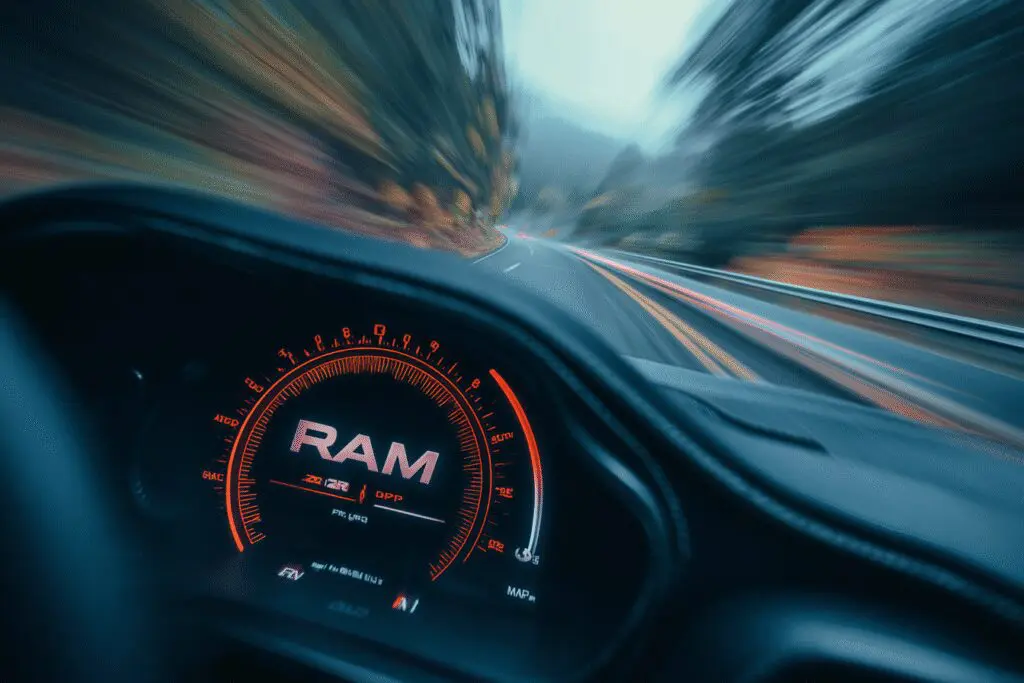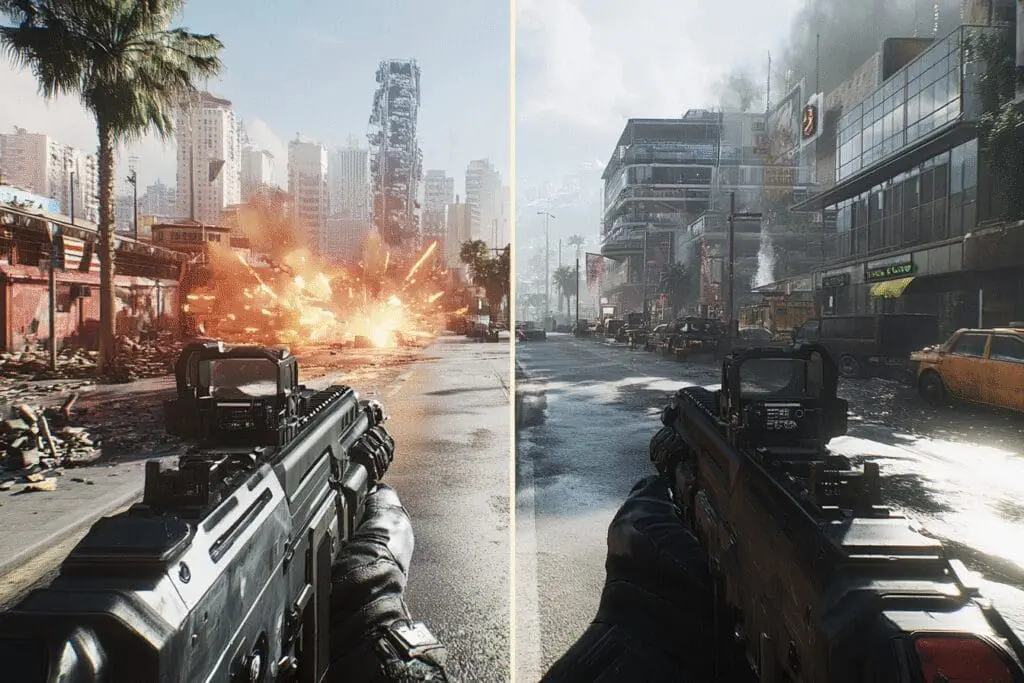Did you know that your computer’s RAM might be the silent bottleneck strangling your gaming performance, even with a top-tier graphics card? It’s a common misconception that slapping a powerful GPU into your rig is the only ticket to gaming nirvana. But what if the real key to smoother frame rates and faster load times has been hiding in plain sight all along? Today, we’re diving deep into the often-misunderstood world of memory to answer the ultimate question for PC builders everywhere: How does RAM affect gaming?
You see, for years, the conversation has been dominated by processors and graphics cards. Yet, RAM plays a crucial, behind-the-scenes role that can make or break your entire experience. It’s the unsung hero of your gaming setup. Consequently, understanding its impact is essential for anyone serious about getting the most out of their machine. Let’s pull back the curtain and reveal the truth about RAM’s role in your favorite games.
More in Hardware Category
How Much Does It Cost to Build a Gaming PC
Is It Hard to Build a Gaming PC
Is It Cheaper to Build a Gaming PC
What Exactly Is RAM and Why Should a Gamer Care?
Before we get into the nitty-gritty, let’s establish what we’re even talking about. RAM, or Random Access Memory, is essentially your computer’s short-term memory. Think of it as your digital workspace. When you launch a game, your PC pulls all the necessary data—like maps, character models, and textures—from your much slower hard drive (HDD) or solid-state drive (SSD) and loads it into RAM.
Why does it do this? Because RAM is incredibly fast. Your processor needs lightning-quick access to this game data to render each frame you see on screen. If it had to constantly fetch information from your main storage, gaming as we know it would be an unplayable, stuttering mess. Therefore, having enough fast RAM is like having a large, well-organized desk; everything you need is within arm’s reach, allowing you to work (or play) efficiently.
How Much RAM Do I Actually Need for Modern Gaming?
This is the million-dollar question, isn’t it? The answer has changed significantly over the years. A decade ago, 8GB was considered the gold standard. Today, that’s the bare minimum for even casual gaming.
Modern games are becoming increasingly complex and data-hungry. Expansive open worlds like those in Cyberpunk 2077 or detailed simulators like Microsoft Flight Simulator require a massive amount of assets to be loaded simultaneously.
Here’s a simple breakdown for today’s gaming landscape:
- 8GB: This is the absolute baseline. You can get by with 8GB for older titles or less demanding indie games. However, you’ll likely experience stutters and performance issues in modern AAA games. Furthermore, you’ll have to close virtually every other application, like your browser or Discord, to free up memory.
- 16GB: This is the current sweet spot for the vast majority of gamers. With 16GB of RAM, you can comfortably play almost any new release without worrying about memory bottlenecks. It also gives you enough headroom to multitask—you can keep your browser open with a dozen tabs, stream music, and chat on Discord all while gaming.
- 32GB: For a long time, 32GB was considered overkill. That’s starting to change. For high-end gaming, especially at 4K resolution with high-resolution texture packs, 32GB is becoming the new standard. It’s also a fantastic investment for future-proofing your rig and for anyone who does more than just game, such as video editing or streaming.
- 64GB and Beyond: Honestly, for gaming alone, this is still excessive. You won’t see any performance benefit in 99% of games by going from 32GB to 64GB. This amount of RAM is primarily for professional workstations and serious content creators.
Will Upgrading My RAM Magically Increase My FPS?
Let’s clear up a huge myth right now. Upgrading your RAM will not typically give you a massive, direct boost in your average frames per second (FPS) in the same way a new graphics card would. That’s not its primary job. RAM’s influence on gaming performance is more about stability and smoothness.
Think of it this way: not having enough RAM will absolutely tank your FPS. When a game needs more memory than your system has available, your PC has to start using a “page file” on your hard drive or SSD. This process, known as swapping, is incredibly slow compared to accessing RAM directly. The result?
- Massive frame drops
- Annoying stuttering and hitching
- Longer loading times
So, if you’re running on 8GB and upgrade to 16GB, you will almost certainly see a significant performance improvement in modern games. You’re not necessarily boosting your maximum FPS, but you are raising your minimum FPS and eliminating those jarring stutters. In other words, you’re making the entire experience smoother and more consistent. Conversely, going from 16GB to 32GB might not show a noticeable FPS increase unless the specific game you’re playing is exceptionally memory-intensive.
Is Faster RAM More Important Than More RAM?
This is where things get a bit more technical but stay with me. Besides the amount (capacity) of RAM, you also have its speed (frequency, measured in MHz) and timings (latency). Does this stuff really matter for gaming?
Yes, it absolutely does.
For years, Intel processors were less sensitive to RAM speed, but that has changed with recent generations. AMD’s Ryzen processors, in particular, have always shown a significant performance benefit from faster RAM. This is because the processor’s internal components, the “Infinity Fabric,” are tied directly to the memory clock speed.
Faster RAM allows your CPU to access data more quickly, which can lead to a tangible increase in FPS, especially in CPU-bound scenarios. These are situations where your processor is the limiting factor, which often happens at lower resolutions like 1080p or in games that rely heavily on complex calculations, like real-time strategy games.
A study from Purdue University’s College of Engineering often delves into how memory hierarchies and speed impact processor performance, underlining the fundamental connection between RAM speed and CPU efficiency. While this is a broad academic area, the principles directly apply to gaming.
So, what’s better? Having 32GB of slow RAM (e.g., 2400MHz) or 16GB of fast RAM (e.g., 3600MHz)? For a pure gaming machine, the 16GB of faster RAM will often provide a better, more responsive experience. The ideal scenario, of course, is to have both: a high capacity and a high speed.
What is Dual-Channel RAM and Do I Need It?
You’ve probably seen motherboard manuals talk about installing RAM sticks in specific slots. There’s a very good reason for that. Most modern consumer PCs use a dual-channel memory architecture. This essentially means your CPU has two separate channels to communicate with your RAM.
To take advantage of this, you need to have at least two sticks of RAM installed in the correct slots. Running in dual-channel mode effectively doubles the data bandwidth between your CPU and RAM.
What does this mean for gaming?
- A significant performance uplift, sometimes up to 20% or more, especially in games that are CPU-dependent.
- It’s one of the easiest and most cost-effective ways to boost your PC’s performance.
I personally made the mistake of running a single 16GB stick for a while, thinking it was fine. When I finally switched to two 8GB sticks to enable dual-channel, the difference in smoothness and responsiveness was immediately noticeable. It felt like I had gotten a free CPU upgrade. Always, always opt for two sticks over one.
How Can I Check if RAM is Bottlenecking My Games?
So, how can you tell if your RAM is the culprit behind your performance woes? It’s actually quite simple to diagnose.
First, you can use the built-in Windows Task Manager. While your game is running, press Ctrl + Shift + Esc to open it up. Go to the “Performance” tab and click on “Memory.” You’ll see a graph showing your memory usage. If you see that your RAM usage is consistently hitting 95% or higher, that’s a clear sign you’re running out of memory. This is your PC screaming for an upgrade.
Another key indicator is your hard drive activity light. If you notice it flashing like crazy during gameplay, especially when the game stutters, that’s a sign your system is heavily relying on the page file. It’s swapping data back and forth from your slow storage because there’s no room left in your RAM.
Ultimately, the best test is your own experience. If games feel hitchy, if loading screens take forever, and if your whole system slows to a crawl while a game is running, insufficient RAM is a very likely cause.
The Final Verdict: Your Gaming Rig’s Unsung Hero
It’s not about chasing the highest possible number on an FPS counter. It’s about creating a stable, smooth, and seamless experience. It’s the foundational component that allows your powerful CPU and GPU to stretch their legs and perform at their peak.
Ignoring your RAM is like buying a Ferrari and trying to run it on cheap, low-octane fuel. Sure, the car will still run, but it will sputter, perform poorly, and you’ll never experience what it’s truly capable of.
For gamers today, 16GB is the confident, reliable choice, while 32GB is the smart investment for the future. And remember, running in dual-channel with the fastest RAM your motherboard and CPU can support will always give you an edge. Stop letting your memory be an afterthought; give it the attention it deserves, and your gaming experience will thank you for it.
Frequently Asked Questions – How Does RAM Affect Gaming

What is dual-channel RAM and why is it beneficial for gaming?
Dual-channel RAM allows your CPU to communicate with two RAM sticks simultaneously, doubling data transfer bandwidth. Using dual-channel mode can significantly increase gaming performance, often improving frame rates by 20% or more, and it is achieved by installing two matching RAM sticks in the correct motherboard slots.
What is the importance of RAM speed and how does it impact gaming?
RAM speed, measured in MHz or MT/s, indicates how quickly it can read and write data. Faster RAM allows the CPU to access data more quickly, which can improve game performance, especially on newer CPUs like AMD’s Ryzen series. It can boost frame rates and reduce load times in CPU-intensive games.
How much RAM is recommended for gaming in 2025?
In 2025, 16GB of RAM is considered the optimal amount for most gamers, offering a good balance of performance and cost. For future-proofing or heavy multitasking such as streaming, 32GB is recommended, especially for demanding or heavily modded games.
How does RAM affect gaming performance and gameplay smoothness?
RAM influences gaming performance by preventing stuttering and lag, ensuring game data is readily available in fast memory. Adequate RAM allows games to load faster, keeps gameplay stable, and maintains higher minimum frame rates, resulting in a smoother and more enjoyable gaming experience.
What is RAM and how does it function in a gaming PC?
RAM, or Random Access Memory, is your computer’s high-speed, short-term memory that temporarily stores data your PC needs for current tasks. It acts like a workbench, providing quick access to tools and data, which helps your PC run games smoothly and respond quickly.





